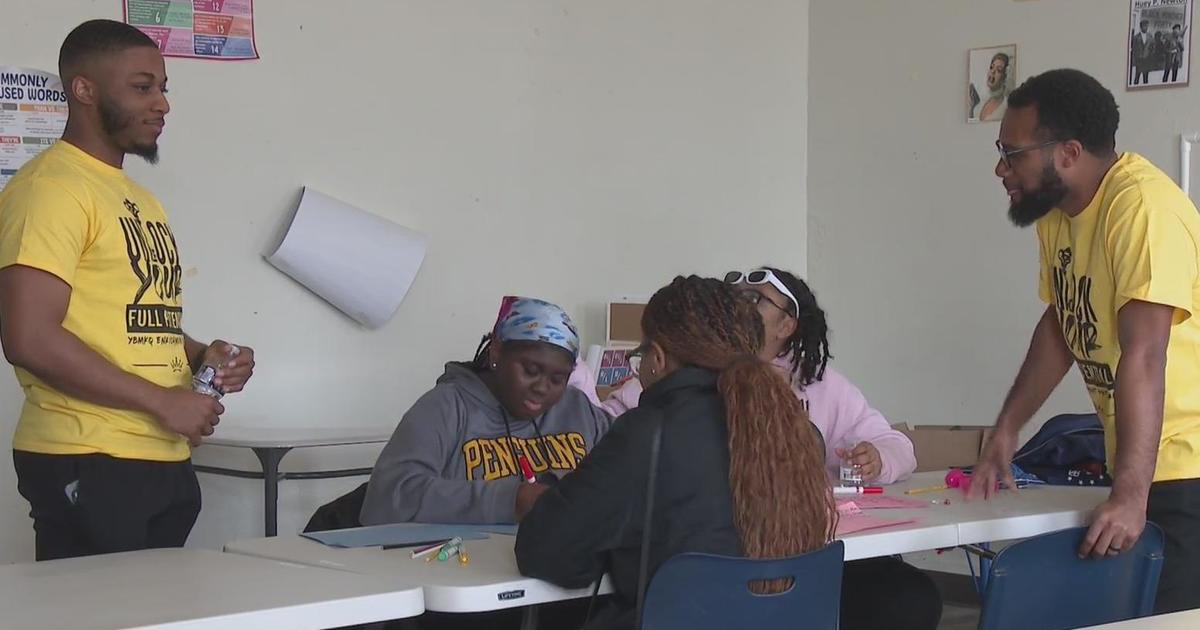Genetic Cancer Risk Assessment Gives People Control Over Future
PITTSBURGH (KDKA) -- Family photos often help you figure out where your nose came from, or the shape of your eyes, even the curves of your mouth.
What may not be so obvious is what your family health history, cancer history in particular, says about you.
Lynne Hayes-Freeland's grandmother had breast cancer at a young age, so did her grandmother's sister.
Lynne's mother developed breast cancer later in life, in her 70s. Four years ago, Lynne's sister developed cancer of the appendix - an illness that took her life a year after diagnosis.
There seemed to be a pattern developing, but Lynne had no idea what it meant. She began talking about a cancer connection with Dr. Mylynda Massart, of UPMC.
"There are many, many cancer syndromes and when you're talking to your physician about your history, you need to review all the known cancers in the family. And the provider needs to be trained to recognize those patterns," Dr. Massart said.
The first step in the process: genetic risk assessment.
It is a simple series of questions that assesses if, where or how cancer shows up in your family history. It may also hold the key to your own cancer future. Dr. Massart believes that risk assessment should be a part of every doctor's approach - regardless of whether the patient is male or female.
"It's life changing, because these individuals have the opportunity to start high-risk screening, intense screening at a much earlier age," Dr. Massart said.
Lynne's initial assessment put her in the "high-risk" category, which meant looking closer at her cancer family tree.
It turns out she was a candidate for genetic testing because there was a direct connection - mother, sister, grandmother.
Did Lynne have the BRCA gene associated with Breast and Ovarian cancer and what would that mean? Dr. Massart explained what the test results could reveal.
"One of the reasons that this is critically important is for screening. It changes changes the age at which we would initiate your screening. It changes the intensity at which we would do your screening. So, for example, instead of a mammogram once a year after the age of 40 or 50, we would do a mammogram, alternating with breast MRI every six months, starting at a younger age," Dr. Massart said.
Corey Martin is the Managing Editor of the KDKA-TV Newsroom. As he learned about Lynne's journey, he started connecting the dots in his own family history. His mother has been touched by cancer three times. So, he decided to take the same journey. He started with the risk assessment and then a meeting with the doctor for a follow-up.
"What I'd like to do is go over your family history in a little bit more detail and together we're going to build a pedigree, and look at the global picture and then together decide what your true risk is and how to proceed," Dr. Massart said.
After building Corey's family history based on the information he had, his risk was less than 20 percent, so there was no need for him to have genetic testing. Lynne on the other hand did the testing, which is a simple blood draw. Because she was considered high-risk it was covered by her health insurance, but every policy is different.
Here is an important note: the gene can be passed down from your mother or father, so risk assessments are not just for women.
"It's also important to continue discussing with men because they have their own potential risk for developing cancer, but then those men go on to be fathers and they have daughters and if they carry that mutation, they have just as much likelihood of passing that mutation onto their daughters and their sons," Dr. Massart said.
For Lynne, her son and daughter were a big reason to find out if she had the gene. She wanted to know if it could be passed on to them, or her new grandson. Lynne's test was done in early December, and she got the results in late January as a part of this special report.
Waiting was hard. She was relieved to learn she did not have the BRCA gene, the one most often associated with breast or ovarian cancer. Dr. Massart presented her with the details.
"All of these were negative. So not only did we find not any mutation in any of the breast or ovarian cancer genes, we didn't find any mutations in any of the known cancer syndrome genes," Dr. Massart said.
The results also mean there is no risk Lynne's son or daughter for that particular mutation, which is good news.
But, what happens when younger women in particular are faced with a positive result? According to Dr. Massart, there are options.
"One option would be to have a preventative surgery in the case of breast or ovarian cancer. If you have your ovaries removed that then limits your reproductive life span. So a young woman who is the age of 28 or 29, getting married and is planning her future life and family life, and wants to have children, may make a decision to have children sooner rather than later," Dr. Massart said.
Genetic testing can reveal a lot about yourself and your future. But, the first step is a simple assessment, which your doctor can do.
It could be the best investment of five minutes that you will ever make.
Join The Conversation On The KDKA Facebook Page
Stay Up To Date, Follow KDKA On Twitter



